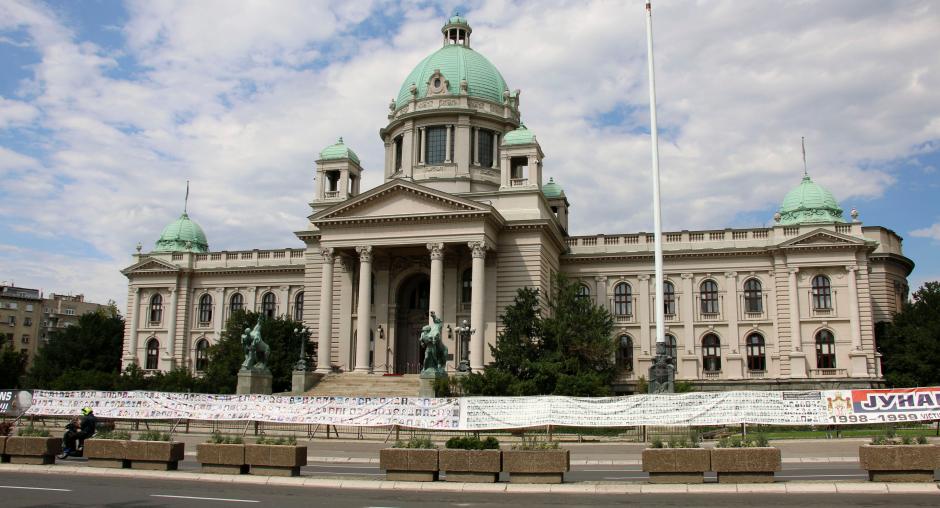Serbian parliamentary elections well run, but ruling party dominance and lack of media diversity limited voters’ choice, international observers say

BELGRADE, 22 June 2020 – While contestants in Serbia’s parliamentary elections were able to campaign and fundamental freedoms were respected, voter choice was limited by the governing party’s overwhelming advantage and the promotion of government policies by most major media outlets, international observers from the OSCE Office for Democratic Institutions and Human Rights (ODIHR) concluded in a statement of their preliminary findings and conclusions today.
“The Serbian authorities organized the elections efficiently in difficult circumstances, but voters were left under-informed and frustrated by the opposition’s lack of access to the media,” said Urszula Gacek, head of ODIHR’s special election assessment mission. “The dominance of the ruling party risks the neutrality of the country’s democratic institutions, and dialogue is needed to bridge the deep political divisions and protect pluralism.”
Some 6.5 million people were eligible to vote in yesterday’s parliamentary elections, which were postponed due to the COVID-19 pandemic. On election day, voting appeared to go smoothly with procedures generally followed, but ODIHR observers noted cases and received reports of violations of the campaign silence that benefitted the ruling party. While the legal framework enables democratic elections to be held, numerous recommendations previously made by ODIHR remain unaddressed, including areas such as election administration, media, campaign finance, dispute resolution and sanctions for electoral violations.
The election was characterized by intense political polarization, amidst a boycott by a considerable section of the opposition. In addition, the dual role of the president as leader of the ruling party has increasingly blurred the line between his official duties and the election campaign, in breach of the commitment made by all OSCE countries to keep a clear separation between the state and political parties.
Physical campaigning was low key following the declaration of the state of emergency, with few mass rallies being organized because of health concerns. At the same time, the campaign was dynamic in the traditional media and online, with many candidates turning to Facebook and Twitter to connect with voters. However, most major TV channels and newspapers promoted government policy, and the few media outlets offering alternative views have limited outreach and were therefore unable to provide an effective counterbalance.
Despite travel and other restrictions in response to the health emergency caused by the COVID-19 pandemic, ODIHR was able to deploy a Special Election Assessment Mission (SEAM) to Serbia, which took up its work on 5 June and will end on 29 June. The SEAM focused on issues identified by ODIHR’s needs assessment mission in order to assess the extent to which the elections were held in line with OSCE commitments and other international standards for democratic elections, as well as with national legislation.
For further information, please contact:
Katya Andrusz, ODIHR: +48 609 522 266 or katya.andrusz@odihr.pl
